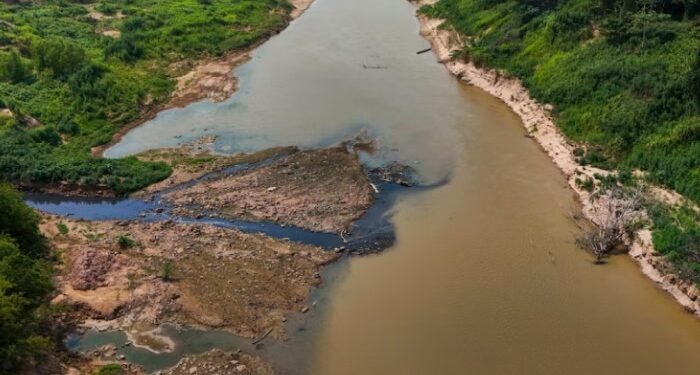One of the Amazon River largest tributaries has reached record low water levels as Brazil faces a severe drought, intensifying concerns about the region’s environmental health and the impact on local communities. The Rio Negro, a major tributary of the Amazon River, is experiencing its worst water levels in decades, putting immense pressure on ecosystems, wildlife, and the livelihoods of those who depend on the river.
Contents
- 1 Drought and Its Devastating Effects
- 1.1 Related posts
- 1.2 Bail Bonds 101: A Step-by-Step Guide for Families and Defendants
- 1.3 New Polls Show Ghana’s Opposition Leader Poised for Victory in Upcoming Presidential Election
- 1.4 England’s Earps Breaks New Ground as the First Female Footballer Honored at Madame Tussauds
- 1.5 Referee David Coote Suspended by PGMOL Following Alleged Verbal Abuse of Liverpool and Klopp in Video
- 1.6 UK’s Starmer Set to Meet Macron in France to Strengthen Ukraine Support Following Trump Victory
- 1.7 Biden Extends Congratulations to Trump, Extends White House Invitation
- 1.8 Trump’s return to power fueled by Hispanic, working-class voter support
- 2 A Crisis for Local Communities
- 3 Global Implications of the Amazon Drought
Drought and Its Devastating Effects
The drought, which has persisted for months, is attributed to a combination of climate change and changing weather patterns, leading to unusually dry conditions across the Amazon Basin. The Rio Negro, which normally flows with abundant water during this time of year, has dropped to alarmingly low levels, leaving parts of the riverbed exposed and hampering river navigation.
A Crisis for Local Communities
For the thousands of people who live along the Rio Negro and depend on its waters, the situation is dire. Fishing, agriculture, and transportation have all been severely disrupted. Communities are facing shortages of food and clean water, with little relief in sight as weather forecasts predict continued dry conditions.
Global Implications of the Amazon Drought
The drought in the Amazon River is not only a local crisis but also part of a broader global environmental issue. The Amazon Basin plays a crucial role in regulating the Earth’s climate, and disruptions to this delicate system could have far-reaching effects. Experts warn that if the region continues to face severe droughts, it could weaken the Amazon’s ability to absorb carbon dioxide, exacerbating global climate change.
Read more also:- Mexico’s Incoming President Appoints New Deputy Finance Minister


















